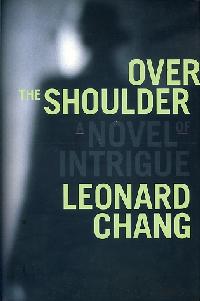Over the Shoulder
Intrigue, honor, and family history in Silicon Valley
By William Wetherall
First posted 10 December 2006
Last updated 1 January 2007

Leonard Chang The greatest attraction of Chang's narrative is the utter naturalness of actions and interactions of his central characters. All are ordinary people living ordinary lives. Which means none are average or normal. For being ordinary means only that one is like everyone else. And everyone is different and everyone has problems. What makes some people more interesting than others is not their differences or their problems, but how they deal with the effects of their differences and problems on others. Over the Shoulder features two such characters, the protagonist, Allen Sung-Oh Choice, a security specilist who does not mind being called a bodyguard, and Linda Maldonado, a J-school graduate who is frustrated writing just lifestyle pieces. He appreciates women but has no confidence any woman would reciprocate his interest, while she is a divorcee on a slow and cautious rebound. Choice's partnership with Maldonado, a wannabe investigative reporter, begins when she dogs him for information about the drive-by shooting of his partner. His initial reluctance to cooperate quickly becomes a pursuit of the truth even more obsessive than hers. Their romantic relationship, not a gratuitous afterthought but an integral part of the plot, develops during quieter interludes in the stream of action. The interludes pace the story and lend it the sense of realism that makes it a novel in addition to a thriller. Other elements of what Chang would call "craft" also make Over the Shoulder a work of literature. Only the most careful and disciplined writers can pull off first-person as well as Chang. Most of the narrative is in real time, during which we see and hear only what Choice does. Flashbacks seamlessly enter the present without intruding on it. Chang is cleary a notch above the MFA herd in that he eschews pressing literary techniques and thriller plots into the service of multiculturalism. If his central characters happen to qualify as members of one or another or several ethnic minority or social issue cohorts, they do so entirely incidental to their essentially human traits and circumstances. At the time of this writing, Chang has written five novels: The Fruit 'N Food (1996), Dispatches from the Cold (1998), Over the Shoulder (2001), Underkill (2003), and Fade to Clear (2004). |